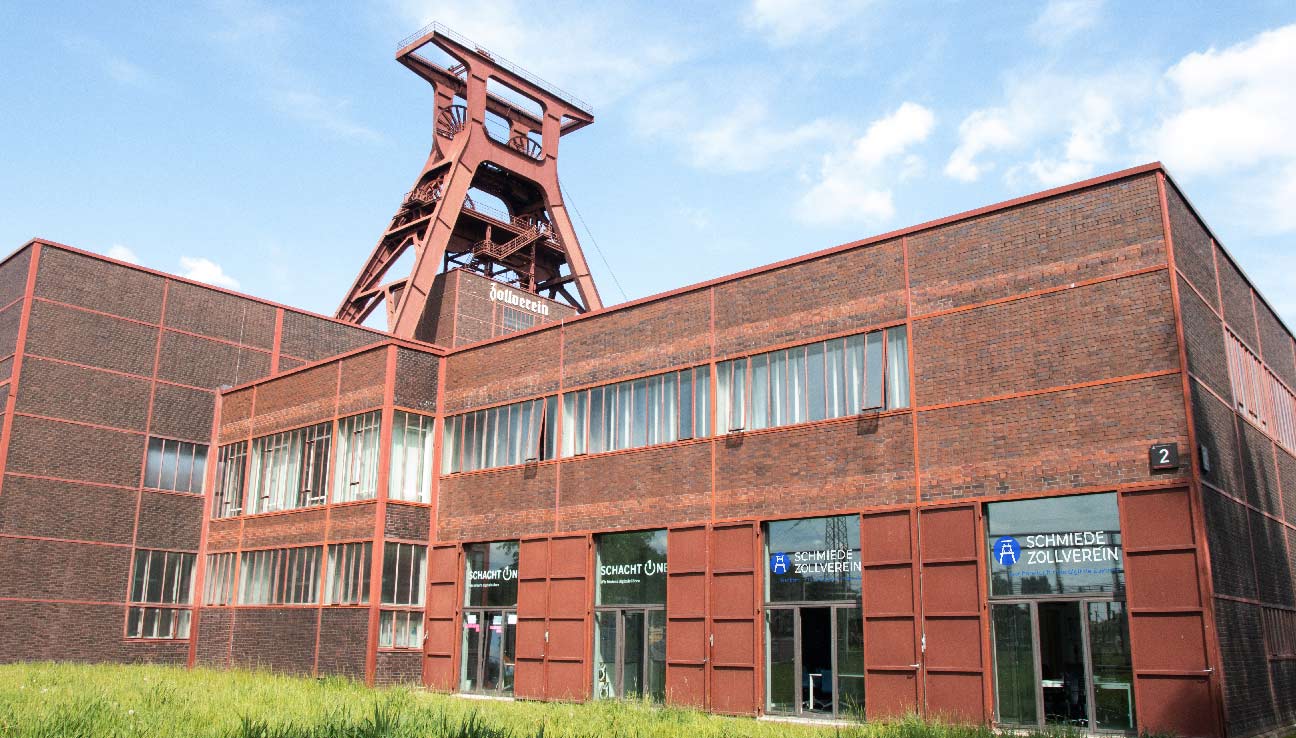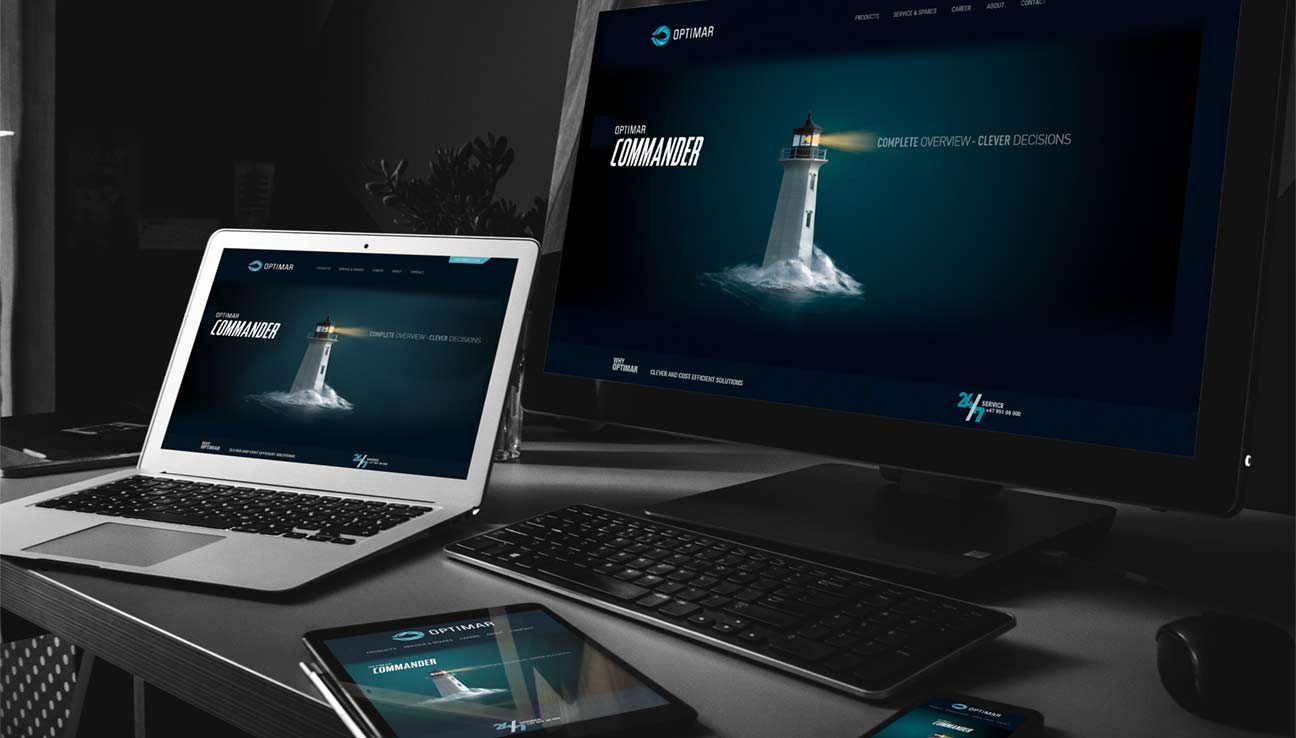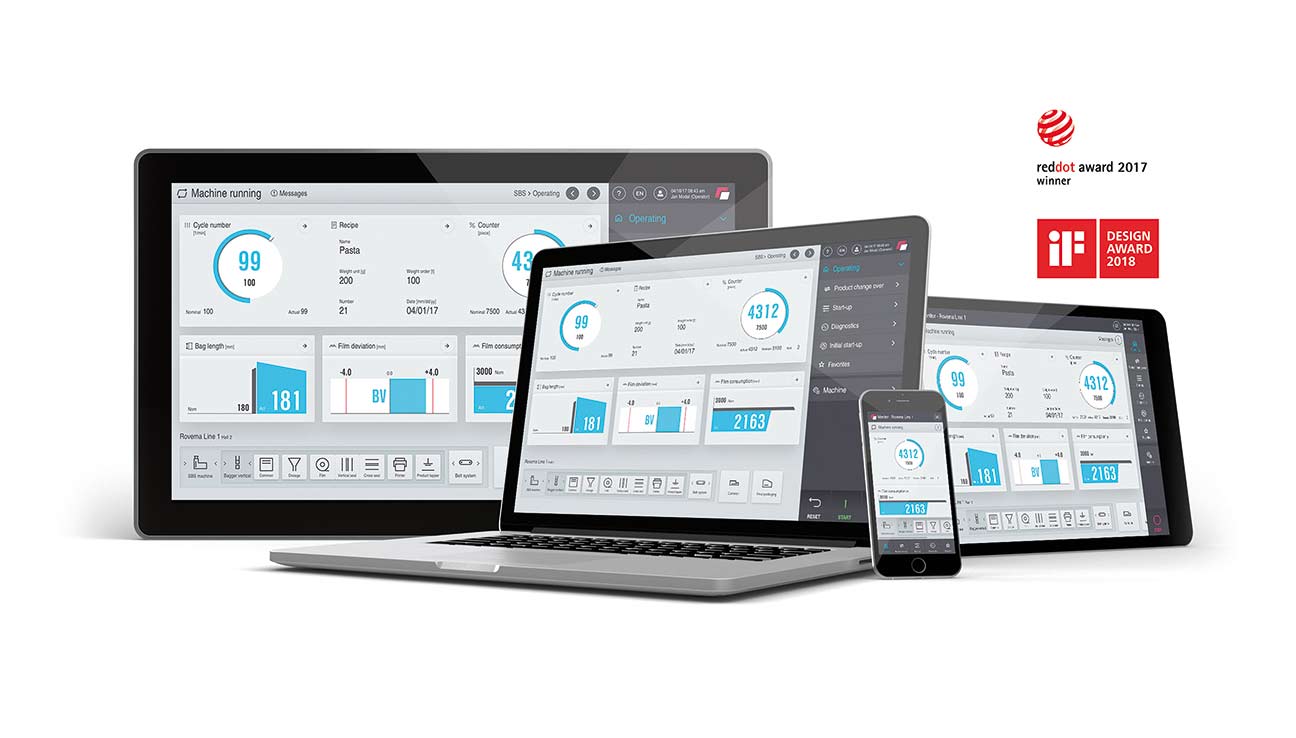Digitalisation
Building networks
Digitalisation #specifically
It has been on everybody’s lips for years: It’s practically a miracle that „digitalisation“ hasn’t been named Germany’s „Un-word of the Year 2018“. Or 2017. Or ’16… That’s because although the whole world seems to pursue this objective, it is often difficult to put the meaning of the term „digital transformation“ into specific words. Here, we come clean and clearly state what digitalisation means, at least for the Haniel Group.
In December 2018, the closure of the last active coal mine – Prosper-Haniel in Bottrop – marked the end of the mining era. The Ruhr region, which is characterised by ironworks, blast furnaces, spoil heaps and colliery towers, again faces structural change. Tradition-conscious and firmly rooted in its hometown, Haniel aims to support its region – not completely selflessly: When the Group formed its digital unit Schacht One at the Zollverein Coal Mine Industrial Complex in April 2016, Haniel once again found itself in a pioneering role as far as digital transformation was concerned – at least in the Ruhr region, as had been the case with the Industrial Revolution. When it established its digital unit, Haniel was aiming to digitalise its business models, establish online sales channels and modernise tired and inefficient processes. In this way, the Group was preparing itself for the future.

New ideas flourish in new spaces
For as different as the divisions are, their digital projects are even more varied. Teams of experts from the individual companies work closely with Schacht One to bring these projects to life. „We support these groups in developing new or complementary digital business models“, said Dirk Müller, CEO of the digital workbench. The team, which has now grown to 15 members, does not function as a traditional service provider, but rather renders it possible for colleagues from the companies to independently make their projects a success story. CWS-boco’s „Mattenprofi“, an online shop for dust control mats, is currently in this phase, for instance. While the product itself is part of CWS-boco’s standard portfolio, the rental service is linked to a three-year contract – a relatively inflexible model, which is particularly interesting for large customers. „Customers can now rent mats from us via a subscription which can be cancelled monthly“, said Sabrina Kohne about one of the largest differences between its business and the mats business of its parent company, CWS-boco. „And it’s quick and easy with various payment methods via our website!“ Not even the parent company CWS has managed to offer that yet. Kohne has been working at CWS-boco since October 2013, and she joined Mattenprofi in 2018. The customer base has grown steadily since then, and there have hardly been any cancelled subscriptions. Working together with Dr Sebastian Schäfer, Digital Project Manager at Schacht One, in 2018 Mattenprofi launched its online shop and tested out various business models. The Mattenprofi team now has clear plans for growth. „We seek advice from Schacht One increasingly rarely“, said Kohne. „Sebastian has become a sparring partner – our voice from the outside. But a very important one.“
Things went somewhat differently at ELG. Following the launch of the „Remetal“ flagship project, Oliver Matten, former Digital Project Manager at Schacht One, joined the company to oversee operations. „The scrap metal industry is still highly analogue and built on personal relationships. We want to bring it into the digital world, in which an online platform is a guarantor of credibility“, said Matten. The team has been working at ELG’s own digital unit EIE to achieve this objective since April 2017. „EIE stands for ELG Innovation Experience. We aim to remain pioneers for innovation in our industry“, said Florian Kriependorf, managing director of the Düsseldorf-based company. The intercultural team is now working on projects, in which employees from many areas of ELG support, in its own digital unit.
„Networking with the regional start-up scene has provided the EIE projects with particular momentum and opportunities.“
Although the company operates its own unit, the colleagues still regularly work with Schacht One. „For example some of our partners who worked on establishing Remetal, the digital scrapyard, were found via Schacht One“, said Kriependorf. „We also benefit from the network of our colleagues from Schacht One, which has grown to be enormous“.
It’s all about connecting people!
„Network“ is another buzzword that is often heard when the issue of digitalisation is discussed in the Haniel Group. The Haniel Leadership Lab in September 2018 revolved around the topic of „Digital Change: It’s all about connecting people“. The Holding Company invited new executives at the Group and a large number of young up-and-coming digital talents to the two-day event. Thanks to new, interactive formats such as „business blind dates“, at which employees who did not previously know each other exchanged views on hot topics, and thanks to an app designed specifically for this event, colleagues were virtually unable to avoid talking to each other and making new contacts. „I think the participants have learned that they can leverage a lot more information, talents, ideas and knowledge through networks“, said Dr Florian Funck, CFO of Haniel, of the event. Simon Ye of BekaertDeslee confirmed this: „At the Haniel Group, we have six different divisions which operate in different markets. We can now already exchange experiences with each other and find the best solutions for our companies.“ Not only for that purpose but also to establish further contacts – internally and externally – there was once again something to be won at the Leadership Lab: participation in the Digital Learning Journey to Lisbon.
Haniel has been an adherent to the principles of the Digital Learning Journeys since 2016. As the name suggests, the goal is to expand participants‘ own expertise in the digital area, look at innovative start-ups, develop ideas and in the best case to bring them back home with them to their own companies. Executives, influencers and digital talents travelled in March 2018 to the South by Southwest Festival (SSXW) in Texas. In November, the next major digital event was up: Off to the legendary WebSummit in Lisbon. 15 employees from all the divisions took one of the world’s largest tech conferences by storm. They attended talks by 1,200 presenters in total, including CEOs and the founders of some of the world’s largest companies, got to know innovative business models for over 2,000 exhibiting start-ups and formed closer contacts amongst themselves. „It was so enriching to get to meet so many clever minds from the Group but also from outside Haniel and the divisions“, said Mariann Blo Dalseth, Marketing & Graphic Advisor at Optimar and co-manager of the „Commander“ digital project.
Commander is a digital platform that maps all the parameters in a fish handling facility and reports any errors, stops and upcoming maintenance work. This provides customers with a real-time overview so they can optimise their processes and increase the efficiency of their systems. By 2018, Optimar had already rolled out the platform with three pilot customers. „Now we want to optimise Commander’s business model based on customer experience. With Schacht One’s help, we hope to take the next step in 2019 to bring Optimar Commander to the entire market“, said Blo Dalseth. And Optimar is not the only machine manufacturer in the portfolio who is grateful for Schacht One’s expertise.

Expertise from A-Z
As a company with approximately 670 employees in 2018, ROVEMA is one of Haniel’s smallest divisions. It therefore has different needs than for instance CWS-boco, which has more than 10,000 employees. However, every division has a shared objective: digitalisation! „This lays the foundation for future development“. Working with Laslo Juhasz, Digital Transformation Leader at Schacht One, is one outcome of the trip to Texas. „Meanwhile, we have intensively discussed the challenges of ROVEMA and developed first ideas for our cooperation. Since then, Ralf and I have been in constant contact,“ explains Juhasz. The introduction of a central ERP system at ROVEMA was already planned before the trip to Texas. „The basis for the implementation of the system was only created through the bundling of our competencies and the start of the concrete cooperation“, said Juhasz. „If it hadn’t been for this insight and trust from ROVEMA, at Schacht One we might have misinterpreted the areas which needed work at ROVEMA. „It makes it possible for us to help create the basis for the division’s digital journey while at the same time thinking about where the trip should end up“. One thing is for sure: the medium-sized company has long since not broken new ground in terms of digitalisation. In 2017, it proved with the „Human Machine Interface“ that expertise in the benefits of digitalisation in the mechanical engineering segment exists: the intuitive user interface makes it possible to remotely access the machine and provides compact real-time information about process values – simplifying communication between man and machine.

Higher, faster, farther
Schacht One not only develops the divisions further, but also itself – constantly. In the summer, the digital unit joined forces with the auditors ETL to form the „Schmiede Zollverein“. Schmiede partners closely with Schacht One to provide medium-sized companies – including those not owned by Haniel – with experience, methods and content. „Schmiede Zollverein gives the Ruhr region a chance to make its many medium-sized companies enkelfähig. At the same time, we prove that a company can have the potential for digital change, even if it is located in the Ruhr region and not in Berlin or Munich“, said Gemkow. SMEs in the Ruhr region, small machinery companies from Hesse, the other Haniel Group companies and the Holding Company itself are at different stages of maturity when it comes to their digital development and their goals and objectives differ from one another. But they do have one thing in common: they are on a journey. Or to put it in modern terms: they are in the middle of their digital transformation.
